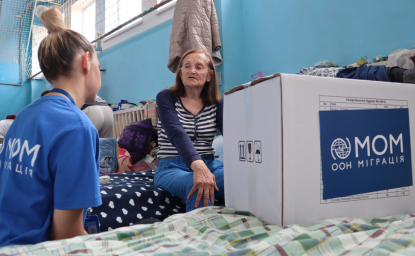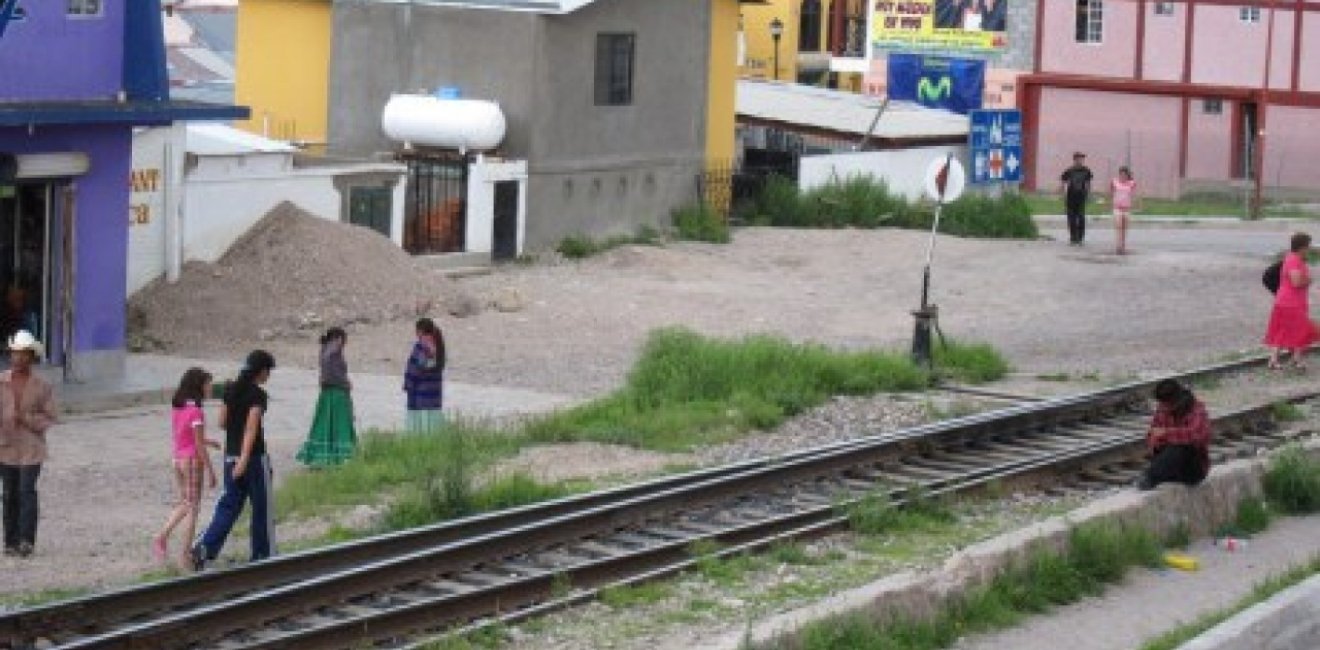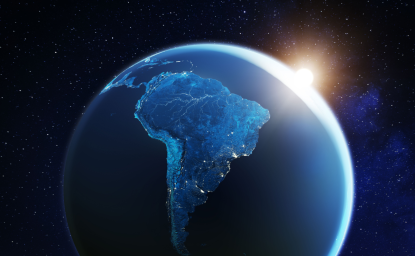How Will Power be Reconfigured in Mexico and Central America in Donald Trump's Second Term in the White House?
The United States is a player of enormous weight in each country. Always promoting its own interests, Washington weighs on local politics, migration, trade, the justice system, and even the fate of presidents, both while they are in office, and when they no longer are. In the Mexico-Central America region, Trump prioritizes as hot topics for 2025-2029:
- China: limiting trade, investment and diplomacy from Beijing in the region, while imposing tariffs on Mexican products, if Mexico goes as far as assembling and exporting Chinese electric vehicles to the US.
- Migration: containment of migrants and asylum seekers through military, technological and legal deployment, to stop the flow of people who have the purpose of entering US territory.
- Fentanyl: destroying laboratories and designating the cartels that bring it into the US as terrorist organizations, subject to unilateral attacks by Washington on Mexican territory.
What a contrast with the declared objectives of President Joe Biden's government (January 20, 2021-January 20, 2025), through the United States Agency for International Development (USAID): strengthening the rule of law: reducing corruption and impunity to curb autocrats, and convincing hundreds of thousands of Central Americans not to migrate to the United States. The president sent his vice president Kamala Harris with an unequivocal message for migrants: 'do not come.'
Biden outlined investments of 4 billion dollars through a 'Plan to Build Security and Prosperity in Partnership with the peoples of Central America', which was denied three times by the facts: there was no alliance with the peoples, nor shared prosperity, and no security at all. At best, that figure reflected plans for reinvestment by American companies in the isthmus, but not necessarily fresh resources.
Washington does not have Mexico or Central America as a priority, but in the three countries in the north of the isthmus, it plays as an internal power factor, not an external actor.
However, not everything is decided by Washington's actions. Our countries continue to be vast systems of segregation, which concentrate wealth and income in a few hands, and expel the majority to force them to seek family sustenance beyond the borders.
The economy is controlled by oligarchs, the political system by people who operate in the service of power, and not for the citizens, and the procurement and administration of justice serve those who can oil the machinery with money and political influence. The United States has for decades sent a contradictory message: on the one hand, ‘keep out – do not trespass’, and on the other hand ‘we need help’. U.S. law criminalizes those who respond to the latter with no papers, given that the legal entry paths are insufficient and are eternally clogged.
Mexican organized crime gangs with a global reach have extended their operations in Central American countries. Beyond drug trafficking, today they exert territorially control, through local gangs, the clandestine arms trade, human trafficking and smuggling, trafficking in human organs and other criminal activities.
In Honduras, the government of President Barack Obama was instrumental in the coup against President Mel Zelaya (January 2006-June 2009). This was followed by twelve years of governments linked to organized crime, and particularly that of President Juan Orlando Hernández (January 2014-January 2022), who was extradited to the United States and convicted in Manhattan in March 2024 on three drug trafficking charges; he is serving a 45-year sentence in a New York prison. Since Hernández was ousted, the distribution of power in Honduras has not changed much, so that organized crime maintains control of the territory, which has violent homicide rates far higher than those of Mexico, Guatemala and El Salvador.[i] Human rights defenders and environmentalists point to criminal organizations as responsible for the violence, but also to the government itself, gangs and some extractive industry entrepreneurs, all of them protected by pacts of impunity.
In contrast, in Guatemala, the US government convincingly deployed the carrot and the stick, so that legislators of the so-called 'pact of corrupt people'[ii] -which operated freely during the mandates of Presidents Jimmy Morales (2014-2019) and Alejandro Giammattei (2019-2024) and which continues to operate mainly through the Attorney General's Office under its control- gave way to the inauguration of President Bernardo Arévalo de León, in the first minutes of January 15, 2024, after repeated attempts to prevent it. Washington harbored a well-founded fear that an interruption in the transmission of constitutional power could become a new trigger for the Guatemalan migrant exodus to the north.
In El Salvador, President Nayib Bukele is promoting an autocratic political model that centralizes power in his person. He has reduced the rate of violent homicides per 100,000 inhabitants from 36 in 2019 to 2.4 in 2023, although it is impossible to audit or compare official figures with independent sources. Bukele has had clashes with the Biden administration, which has criticized his actions against democracy and judicial independence.
On June 1, 2024, Donald Trump Jr. and Matt Gaetz (nominated and subsequently withdrawn for Attorney General five months later by President-elect Donald Trump) attended Bukele's inauguration for his second term. Together with his brothers, the unconstitutionally reelected president controls the executive, legislative (57 of 60 seats in Congress) and judicial branches, as well as the army, the police and the so-called autonomous bodies. The state of emergency has been in place for two and a half years, and there are 80,000 people in prison, one for every 80 inhabitants of the country.
In Nicaragua, the dictatorship of Daniel Ortega and Rosario Murillo has imposed a strategy of total silence on the rest of society. Today, there is no longer any print journalism, and any dissent is labeled as a crime of terrorism or treason. The army and big local capital have been functional to this authoritarian consolidation. The Ortega-Murillo duo managed to materialize an agreement with the Biden government so that in February 2023 Washington would receive 222 dissidents sent into forced exile and stripped of Nicaraguan citizenship.
Costa Rica is home to around 1.3 million Nicaraguans who have left their country, either to seek economic opportunities or to escape the Ortega-Murillo dictatorship. The country's long democratic tradition is now eroded by violations of the constitutional order and the weakening of checks and balances in politics. President Rodrigo Chaves recently decorated Bukele during his most recent visit to San José - against the majority opinion of Costa Rican democratic institutions - and has taken positions close to Trumpism.
In Panama, the government of President José Raúl Mulino has taken measures to drastically reduce the transit of migrants through the Darien Gap - through which most extracontinental migrants enter the region – a measure that is consistent with Trumpism's migration containment policy.
As it is evident, there is a great political fragmentation among the Central American countries; one cannot speak of the region as a homogeneous block that will assume shared positions in the face of the Trump government. ‘The populist Left has more of a presence in the governments of Honduras and Nicaragua; it could be a factor that distances them from Trump, but at the same time they are brought together by their leadership styles’, as former Costa Rican president Laura Chinchilla rightly points out. [iii]
Trump, Mexico and “the ‘Mexican’ Countries” [iv]
Since July 2015, Donald Trump has labeled Mexican migrants as rapists and drug traffickers. It didn’t take long for us to realize that these epithets were directed at all people south of the Rio Grande who are brown-skinned, Catholic, and speak Spanish. Even more serious, these epithets would be associated with migrants to label them as criminals who steal, kill, and rape.
Trump’s first term ran from January 2017 to January 2021. In 2018, Fox News reported that the White House tenant had cut aid to the governments of ‘three Mexican countries’[v]: Guatemala, El Salvador, and Honduras, for misappropriation of US government funds.
Trump also claimed that Venezuelan migrants had infected a town in the state of Colorado and promised to “clean up” the country. He later referred to El Salvador and Haiti as “countries that are shitholes,” and in the 2024 election campaign he accused Haitians of eating the dogs and the cats of American families. Moreover, in September a comedian at a Trump rally came up with a terrible joke, calling Puerto Rico “an island of garbage”.
The US census identifies three countries of origin for its Hispanic or Latino population: Mexico, Puerto Rico, and Cuba. The rest are labeled by the average American as: “they are all Mexican.” This seems surprising to us, but it is also surprising that Mexicans call Japanese, Koreans, Vietnamese, and other people from Southeast Asia “Chinese,” even though they are not. If African and Asian migrants are added, things become extremely complicated. Even if they are not Mexican, they enter the US through Mexico, so, in their eyes, there is a daily ‘invasion’ of people whom they describe as: ‘They’re not like us’ – they are not like us.
The Trumpist ‘cultural victory’ is that immigrants from previous generations, who are already American citizens, have joined in the rejection of newcomers from their country of origin, for fear of losing their place in American society: ‘We are Americans, we have nothing to do with them, they are foreigners’, they distance themselves.
What will Donald Trump Attempt to do in Central America?
Before Joe Biden outlined his (unfulfilled) plan to defend democracy in the isthmus, Donald Trump served as the 45th president of the United States. He was president on August 31, 2018, when the government of President Jimmy Morales announced the non-renewal of the mandate of the International Commission Against Impunity in Guatemala (CICIG), sponsored by the United Nations (UN). His Secretary of State, Mike Pompeo, indicated that the Trump government 'appreciated the efforts of the Guatemalan government in security and in actions against narcotics.' Prosecutors, judges, political leaders, journalists, and human rights defenders who denounced former presidents, members of Congress, government ministers, and powerful drug traffickers suffered reprisals from the Giammattei administration once the CICIG was expelled, and a significant number were forced into exile.
The Mission to Support the Fight against Corruption and Impunity in Honduras (MACCIH), sponsored by the Organization of American States (OAS), was dismissed by President Juan Orlando Hernández in January 2020, under President Trump’s watch.
The respective national governments of Guatemala and Honduras decided not to renovate the mandates of the respective anti-corruption bodies. The Trump administration was unwilling to use its leverage to support extending MACCIH’s mission.
In Guatemala, the corrupt pact declared a war against President Arévalo that even threatens the viability of his mandate. Guatemalan oligarchs have a worldview stuck in the Cold War and anti-communism. On October 21, 2024, the 80th anniversary of the 1944 Revolution was commemorated. It gave rise to the so-called democratic spring, which began with the government of General President Juan José Arévalo, father of the current president, and was abruptly cut short by the CIA-backed coup d'état in June 1954 to overthrow President Juan José Arbenz.[vi] Guatemalans, Salvadorans and Nicaraguans in forced exile are wondering today if they will be safe in the US during Trump's second term, or if they will be pressured to seek refuge elsewhere.
The Mexican, Guatemalan, Salvadoran and Honduran exodus to the north has continued unabated. While the flow has been reduced since January 2024, the number of U.S.-Mexico Border Patrol Migrant Encounters of nationals of these four countries during fiscal years 2021, 2022, and 2023 was very significant (see Table 1):
Going forward, we must start from the blunt diagnosis with which the digital newspaper El Faro heads its November 11 edition: 'For Trump, Central America does not exist and is reduced to the immigration issue.'[viii] The countries of the region only matter to the extent that Washington's perceptions estimate that they are a threat to the national security of the United States.
Trump's second term has a "welcome" ready for Latin American and other migrants: mass deportations; imposition of taxes on remittances from the US; end of the TPS (Temporary Protection Status) temporary authorization program for Salvadorans, Hondurans, Nicaraguans, Haitians and Venezuelans; and conclusion of DACA (Deferred Action for Childhood Arrivals Program), an exercise of prosecutorial discretion to defer removal action against individuals who arrived in the United States as children - DACA does not provide lawful status, but certain individuals may be eligible to request work authorization.
The consequences of these measures will be disastrous, and our ability to cushion them very limited. The Mexican elites are counting on the USMCA, US companies with businesses in Mexico, and their political contacts, to tell Trump that these measures mean the U.S. shooting itself in the foot. However, these efforts may end up being useless, as the traditional institutions of American liberal democracy are also very worn out or coming to an end.
Betting on a better future for the region based on Washington's money is self-deception. Trump is not going to pour money into Central America. In fact, remittances dramatically dwarf foreign assistance; see Table 2:
The fact is that the biggest investors in the Central American economy and society are migrant workers, but this is not recognized. It never hurts to remember that remittances are private salaries destined for family subsistence. They are not public resources, nor do they have to be a source of pride for governments; rather, they aim to alleviate government shortcomings.
The oligarchs collect migrants' money in their banks, in their shopping malls, in all kinds of services, and ship huge amounts of money to tax havens. What a paradox: the poor put money into their countries of origin, while the rich take it out by planeloads. This takes place in the context of a very low average tax burden, which according to the Central American Institute of Fiscal Studies (Icefi), in 2022 barely reached 15.3 percent of GDP. [x]
Beyond the Western Hemisphere, Washington has its plate full, facing complex challenges like the wars in Ukraine and the Middle East; the struggle with China for global hegemony; and the interventionism of the Russian government in disinformation tasks in the elections in the U.S., in European countries and in Latin America.
Who will Trump surround himself with? Senator Marco Rubio, born in Florida to Cuban parents, will be Secretary of State. He is bound to implement a 'hard line' on immigration and fiercely attacked then president López Obrador of Mexico: 'he has handed over a large part of his national territory to the drug traffickers who control those areas'.[x] With his appointment, Trump 'subcontracts' foreign policy in Latin America and the Caribbean to the Cuban American community – that is certain to be a reason for friction with the Sheinbaum administration in Mexico, who as his predecessor’s, is close to the Havana regime.
Former U.S. Congressman Matt Gaetz was initially nominated by Trump for the position of attorney general. He had spoken out in favor of carrying out surgical operations against Mexican cartels. However, after it became known that he had been investigated for sexual misconduct, Gaetz himself announced on November 21 that he was declining his nomination. Trump has now nominated Pam Biondi, former attorney general of the state of Florida.
Michael Waltz will be Trump's National Security Advisor in the White House; he seeks to designate the Mexican cartels as terrorist organizations. If he succeeds, Washington could trigger an Authorization for the Use of Military Force (AUMF) and deploy intelligence and surveillance resources to "dismantle" the cartels. At the head of the Department of Homeland Security (DHS), will be Kristi Noem, until now governor of South Dakota, who does not know the border, but is a hard-liner Trump supporter.
In the immigration area, the grey eminence is Stephen Miller, who already collaborated with Trump in his first term, and who will now be deputy chief of staff. Miller is the ideologue of the “immigration deterrence through attrition” that is detailed in the so-called “Project 2025.” It was he who convinced Trump to make immigration the main campaign issue in the final months of the race to defeat Kamala Harris.
The new “border czar” will be Tom Homan, head of Immigration and Customs Enforcement (ICE), the agency that will carry out mass deportations; this official has decades of experience in migrant raids. In Trump’s second term, he is also going against the Mexican cartels, equating them with terrorists.
These appointments (except for Waltz’s) require Senate confirmation. There is no guarantee that all of them will get it, but it is realistic to bet that few legislators will dare to challenge Trump’s appointments.
Between 2020 and 2024, political priorities were reversed in the United States: today, immigration and border control are high priorities, while the defense of democracy in the region is not even mentioned.
What will Mexico and Guatemala do Together?
There is a recent precedent for Mexican cooperation with Central America: The Comprehensive Development Plan (CDP) for El Salvador, Guatemala, Honduras and southeastern Mexico, presented on May 20, 2019, [xi] by Dr. Alicia Bárcena, then executive secretary of the Economic Commission for Latin America (ECLAC), to the presidents of these countries. The CDP proposed 131 projects for economic development, social welfare and response to climate change, which sought to contribute to mitigating migration, and that in any case it would be safe, orderly and regular, as a free and non-forced option. [xii]
There were at least two factors that came together to prevent the full implementation of the CDP: the countries’ presidents did not get involved in a way they would consider the outcome of their own making; and its priority was to reduce migration - which seemed to be a goal imposed from above and from outside - when its objective should have focused on improving the standard of living of the majority of the population. Additionally, perhaps the biggest factor was that the Government of the United States of America decided not to invest in the CDP and preferred an approach that relied on investment from the private sector and US companies taking center stage.
The expectations of Central American migrants towards the AMLO government pointed to human mobility with respect for human rights. The opposite occurred: the governments allied to implement militarized migration containment in the region, while organized crime took over the migration routes.
In 2020, researchers from six public research centers of the National Council of Science and Technology (Conacyt) published eleven studies to undertake the promotion of investments in infrastructure, productive, investment and commercial opportunities in the region. The central goal was to promote sustainable and inclusive development that would lead to a better quality of life for the inhabitants of the Mexico-Guatemala cross-border region.
Governments so far have approached the need for investment taking every need in a haphazard way: here we need a railroad branch; here we take the gas pipeline from Tuxpan to Coatzacoalcos, then via the trans-isthmic corridor to Tapachula and on to Guatemala; furthermore, dams will be built along the river to generate hydroelectric energy. Governments see the territories of indigenous and peasant communities in the border states and departments as lands of conquest, with no attention to the communities’ ownership of the process, which is unacceptable.
Today, Chiapas and a good part of the Guatemalan geography are controlled by organized crime gangs that, in complicity with narco-politicians, conquer water, forests, territory, work, transportation, extort the population and murder those who promote peace. [xiii] History is relentless: in the 1980s, thousands of Guatemalans escaped genocide by seeking refuge in Mexico. Four decades later, in July 2024, it was revealed that, in the context of a serious humanitarian crisis, more than 600 people from indigenous and peasant communities in Chiapas had fled violence in their state and crossed the Guatemalan border. [xiv]
The new Mexican government repeats like a mantra that the strategy is to address the root causes of migration, and proposes a Mexican model of labor mobility, which until now only exists on paper. In fact, on October 2, the second day of President Sheinbaum's term, the disproportionate use of lethal force by agents of the Mexican State caused the death of six migrants and ten more were injured. The Mexican Catholic Bishops’ Conference pointed out that this tragedy was not an isolated event, but the consequence of the militarization of Mexican immigration policy. [xv]
Nevertheless, we must take into account the fundamental point: these are two governments of neighboring countries, which, from the beginning, have had an understanding at the highest level. The importance that President Arévalo attaches to relations with the United States and with Mexico is reflected in two very important appointments. His ambassador to the United States, Dr. Hugo Beteta, headed the regional office of ECLAC in Mexico and is familiar with the U.S. government and the operation in the region of the multilateral banks based in Washington; while his ambassador to Mexico, Édgar Gutiérrez Girón, is a former foreign minister who knows his host country and has a wide network of contacts with Mexican diplomacy and the Central American diaspora in Mexico.
However, looking ahead to fiscal year 2025, President Claudia Sheinbaum's government faces a severe budget constraint. The Mexican foreign ministry needs to deploy experienced and regionally knowledgeable diplomats and staff in Washington and in Guatemala City to be up to the task. It would be a self-inflicted defeat if the Mexico-Guatemala understanding were held hostage to a misunderstood financial astringency or austerity.
In the case of cooperation between the Sheinbaum and Arévalo governments, it would be imperative to address the enormous social debt with the Mayan peoples: the terrible educational lag, the absence of public health services, and of course, public insecurity.[xvi] Any strategy would have to be proposed and built from and together with the communities in the border states: Chiapas, Tabasco, Campeche, and Quintana Roo; and in the border departments: San Marcos, Huehuetenango, Quiché, and El Petén.
The Usumacinta River is born near the point where the departments of Huehuetenango, Totonicapán, and El Quiché meet, and serves as a natural border between Mexico and Guatemala along 310 kilometers. It is a region of humid jungles, highly coveted by extractive industries. Another paradox: the inhabitants of this megadiverse region are an underclass in societies as markedly segregated as Mexico and Guatemala.
Can the two governments that call themselves progressive address the historical demands of their own peoples?
Is it necessary to reiterate that President Arévalo was sworn in thanks to the support of the indigenous peoples, and above all, of the 48 cantons of Totonicapán? Can the fact that President Sheinbaum won by a large majority in the states of southeastern Mexico, which have the largest indigenous population, be left aside from the equation?
Are today's governments in Mexico and Guatemala willing to invest in their own people? Or will they leave things to inertia and adrift, so that their compatriots are forced to follow the inexorable path of migrant exodus in the face of unbridled systemic violence and lack of opportunities at home?
Geography is destiny. Guatemala and Mexico share a coastline on both the Pacific Ocean and the Caribbean Sea. Mexico and Central America have a shared horizon. Let's put ourselves in charge of it. Migration is part of our history and will continue to be so. It is crucial to resist the Trumpist onslaught, but the fundamental task is to take responsibility for our structural problems and reverse internal neocolonialism, to turn our countries into habitable places. Nothing more, but nothing less.
*Originally published in the Mexican magazine Nexos on November 19, 2024: https://redaccion.nexos.com.mx/mexico-y-centroamerica-en-el-segundo-mandato-de-trump/
**Associate Professor, Department of International Studies, Center for Research and Teaching in Economics (CIDE), Mexico City.
@Carlos_Tampico
[i] The respective figures for 2023 were: Honduras 35, Mexico 26, Guatemala 20, and El Salvador 8 violent homicides per 100,000 inhabitants. Source: https://worldpopulationreview.com/country-rankings/muerder-rate-by-country
[ii] In Spanish, ‘pacto de corruptos’.
[iii] See the digital portal El Faro, https://elfaro.net/en/202411/centroamerica/27628/for-trump-central-america-does-not-exist-and-is-reduced-to-migration
[iv] A preliminary version of this segment was originally published in the Mexican daily EL UNIVERSAL: https://www.eluniversal.com.mx/opinion/por-mexico-hoy/trump-mexico-y-los-paises-mexicanos/
[v] La France, Adrienne (2019). Fox Got It Wrong With ‘3 Mexican Countries,’ but It Also Got It Right. https://www.theatlantic.com/ideas/archive/2019/03/foxs-3-mexican-countries-chyron-message/586195/ , March 31st.
[vi] Cfr. ‘El silencio de Neto’ (Ernesto’s Silence), an extraordinary Guatemalan film directed by Luis Argueda, which takes place in June 1954, during the last month of Arbenz’s government. Ernesto and his classmates hear from a school teacher who discusses the goof work of President Juan José Arévalo, president of Guatemala from March 15, 1945, to March 15, 1951.
[vii] Encounters include apprehensions, inadmissible persons and expulsions. A person can be detained and removed from U.S. territory more than once over the fiscal year. Cfr. https://www.cbp.gov/newsroom/stats/nationwide-encounters.
[viii] Cfr. El Faro, Ibid.
[ix] Medina Berdejo, Abelardo (2023). Panorama de las finanzas públicas en Centroamérica. https://icefi.org/blog/panorama-de-las-finanzas-publicas-en-centroamerica-2023, February 8th. The tax burden was 20.7% in El Salvador, 19.5% in Nicaragua, 17.6% in Honduras, 14.2% in Costa Rica, 12.1% in Guatemala, and only 8% in Panama.
[x] Marco Rubio, a hawk on Latin America, from Attacking the Narco-Dictatorship in Venezuela to welcoming his friend Javier Milei https://english.elpais.com/usa/elections/2024-11-18/marco-rubio-a-hawk-on-latin-america-from-attacking-the-narco-dictatorship-in-venezuela-to-welcoming-his-friend-javier-milei.html
[xi] The Spanish-language version was first published on May 20, 2020; the English version on September 17, 2021.
[xii] Comprehensive Development Plan for El Salvador, Guatemala, Honduras and the south-southeast of Mexico (2021) – the United Nations’ Economic Commission for Latin America and the Caribbean, cfr. https://www.cepal.org/en/subtopics/comprehensive-development-plan
[xiii] Hernández Navarro, Luis (2024). ‘El padre Marcelo’, in https://www.jornada.com.mx/noticia/2024/10/22/opinion/el-padre-marcelo-4723
[xiv] “The gunshots fly by us, we never thought that violence would reach where we live,” (in Spanish) in: https://elpais.com/mexico/2024-07-26/refugiados-chiapanecos-en-guatemala-los-balazos-pasan-cerca-de-nosotros-nunca-pensamos-que-la-violencia-llegaria-a-donde-vivimos.html
[xv] The Mexican Catholic Bishop’s Conference, Commission on Human Mobility (2024), in Spanish, ‘Sobre los hechos ocurridos en Chiapas’, October 3. Ver: https://caritasmexicana.org/publicacion2.php?id=566
[xvi] Cfr. Hernández Navarro, Luis (2024). ‘Chiapas, drug-trafficking and Neocolonialism’, (in Spanish), in: https://www.jornada.com.mx/noticia/2024/11/05/opinion/chiapas-narcotrafico-y-neocolonialismo-7736
Author
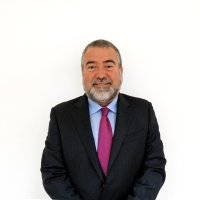
Associate Professor, Centro de Investigación y Docencia Económicas (CIDE)

Mexico Institute
The Mexico Institute seeks to improve understanding, communication, and cooperation between Mexico and the United States by promoting original research, encouraging public discussion, and proposing policy options for enhancing the bilateral relationship. A binational Advisory Board, chaired by Luis Téllez and Earl Anthony Wayne, oversees the work of the Mexico Institute. Read more

Explore More
Browse Insights & Analysis
Dr. Guadalupe Correa-Cabrera: Crossing Borders in Research and Policy
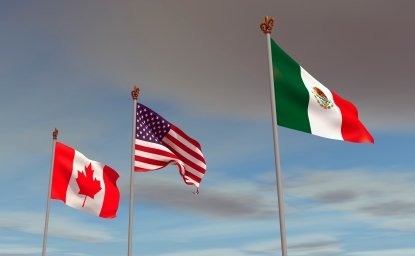
Mexico News Digest Week of 11/18/2024 - 11/22/2024
